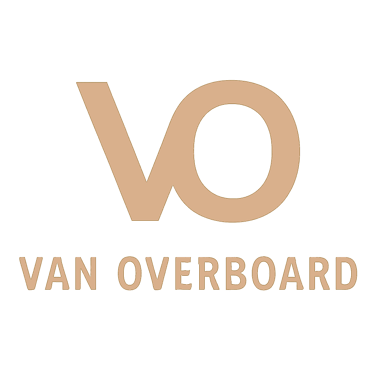An exploration of truth and the ways that we can deal with it.
Who are You?
A look at how our minds are shaped and adapted over time.
AI RENDITION ARTICLES
Van Overboard / ChatGPT AI
4/15/20253 min read
Rediscovering Identity: Who Are We, Really?
As the title suggests, this piece explores identity—how it’s formed over time, shaped by internal and external influences, and what choices we may or may not have in reclaiming who we truly are.
Rather than turning this into a personal story, the intention here is to hold up a mirror—something that offers readers a space to reflect on their own thoughts, rather than absorbing mine. Where personal reference is necessary, it will be minimal and used only to ground the ideas.
Let’s start with something simple: a film. A title, a poster, even a single sentence of a synopsis can stir something within us. That flicker of curiosity isn’t random—it’s connected to something deeper. A desire to understand, to escape, to feel seen. Whether it's a romance, a dystopian future, or a fantastical world of dragons and wizards, the genres we gravitate toward often echo something unspoken within us.
For me, it’s often films centered around a single character—a life laid bare, whether fictional or real. Stories of adversity, transformation, or quiet survival. There’s something grounding in following someone else’s emotional journey, even for a short while. For those moments, we become observers who are simultaneously participating. We dissolve into the narrative.
These choices—of film, of music, of even what grabs our attention—are windows into the architecture of identity. Yet, how often do we actually stop to ask why we’re drawn to what we’re drawn to?
As children, our wants and needs are shaped almost entirely by others. What we’re given (or denied), what is encouraged or dismissed, all molds our psyche. For many, early experiences don’t nurture individuality but instead chip away at it. Expectations replace exploration. Grades become worth. And in the absence of recognition for who we are, we begin to accept the versions of us that others construct.
This disconnect can lead to self-perception as flawed or broken. But sometimes, a simple story—like a well-written film—reminds us of the soul beneath the programming. A moment of emotional connection that feels… honest. Rare. Real.
Interestingly, I’ve noticed that the only other time I feel that level of clarity is in moments of sudden threat or high-stakes urgency—when instinct takes over, and the clutter of social expectation falls away. It’s raw. Unfiltered. And afterward, I often ask myself, "Was that really me?"
We all carry multiple versions of ourselves, shaped by situation and survival. Not disorder, but adaptation. The way you respond in a classroom isn’t the same as how you respond during a crisis. And yet, each is you—filtered through external forces.
Freedom, or what some might call sovereignty, is given to some early on, while others must fight for it, or never realize it’s theirs at all. For many, freedom is conditional—earned only after meeting arbitrary standards, proving worth, or conforming just enough to blend in.
This isn't a new phenomenon, though it might feel more pronounced in today’s culture. Tribal societies—particularly those not touched by Western colonial norms—often showed a broader acceptance of human diversity. Roles were more fluid. Identity wasn't something to be boxed in; it was something to be lived. Everyone had a place, and that place was valued. Not in spite of difference, but because of it.
With the rise of industrialization and so-called “progress,” identity became narrowed, systematized, and often commodified. Individual sovereignty gave way to rigid societal molds. Success became synonymous with conformity. And those who resisted, even silently, often paid a price—sometimes losing touch with their own inner compass.
Modern movements that claim to restore personal freedom often fall prey to the same systems they rebel against. “Woke” culture, originally rooted in awareness and liberation, can become a mirror of the very oppression it seeks to dismantle, once it demands allegiance rather than encourages authenticity.
We’re not as free as we’d like to think. But maybe the first step back to freedom is realizing this. Understanding that much of what we believe to be “us” has been shaped—sometimes gently, sometimes violently—by systems that benefit from our compliance.
And yet, despite all of this, there’s still hope. Hope in reclaiming our own narratives. In refusing to be programmed. In refusing to pass that programming onto future generations.
When we begin to truly understand not just our own stories, but the stories of others—especially those that were never given a voice—we open the door to reimagining what it means to be human. We become capable of reversing the cultural damage, and more importantly, of rebuilding something grounded in empathy, in truth, and in sovereignty.
Ultimately, our birthright is not a life spent in someone else’s mold. It’s not a set of predetermined choices, handed to us by corporations or institutions. Our true identity lies in our connection to something deeper—call it spirit, call it source, call it consciousness.
And once we recognize that, we can begin the slow and powerful work of remembering who we truly are.
